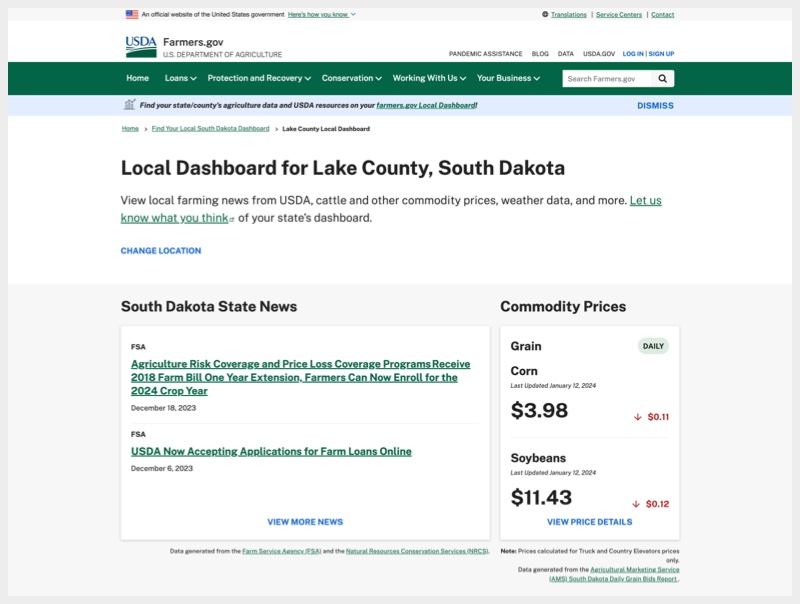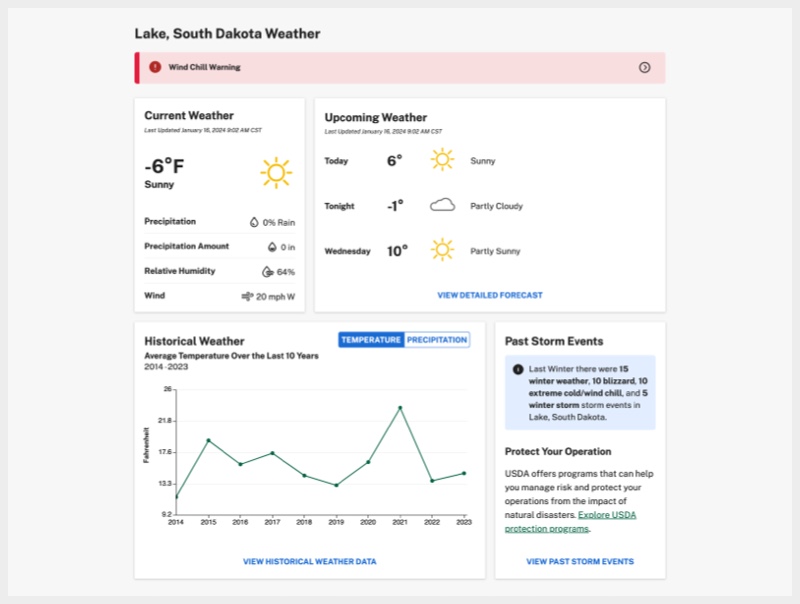Soumya Balasubramanya, The World Bank
“Is There a Dark Side To Solar-Powered Irrigation Pumps?”
By: Forbes – April 5, 2024
"The paper argues that while solar irrigation has potential for reducing poverty and improving livelihoods and incomes in low and middle income countries (global south), greenhouse gas emissions reductions are not likely to meet expectations, and the groundwater use will increase," she says, adding that's limited incentives for farmers to reduce groundwater use, which could put further stress on these resources.”
(Continued...)
Read more on: Forbes
Mehdi Nemati, University of California, Riverside
“Cherish That Hamburger. It Cost a Quarter of the Colorado River, According to Researchers”
By: The Colorado Sun – April 4, 2024
“Accounting for nature’s uses is one of the most helpful parts of the study. If there is a cutback, alfalfa and hay and pasture — those are the ones to go first. This is just purely looking at direct economic impacts. Crops like alfalfa are relatively drought tolerant, always in demand and can be harvested by machine, a more affordable option than human labor. They also act like a buffer in dry years, when farmers can switch to other crops.”
(Continued...)
Read more on: The Colorado Sun
Brittney Goodrich, University of California, Davis
“UC Examines Cost of Growing Strawberries”
By: Farm progress – April 12, 2024
“This study provides growers with a baseline to estimate their own costs, which can help when applying for production loans, projecting labor costs, securing market arrangements, or understanding costs associated with water and nutrient management and regulatory programs.”
(Continued...)
Read more on: Farm progress
Joseph Balagtas, Purdue
University
Jacob Schmiess, Purdue University
“Survey Tallies Consumer Attitudes Toward Lab-Grown Meat Alternatives”
By: Phys.org – April 11, 2024
"We see similar results when evaluating consumers' willingness to try conventional and cultivated meats in a restaurant setting. For common meats, such as beef, chicken and pork, the researchers found that about 90% or more of consumers are willing to try conventional or non-cultivated meats.”
“The results showed that fewer consumers are willing to try exotic meats, though around 50% say they are willing to try professionally prepared octopus, shark and ostrich. Again, we see a willingness to try cultivated versions of these meats drop significantly.”
(Continued...)
Read more on: Phys.org
Dale Manning, Colorado State University
“Colorado Bats Are in Trouble. That’s Bad News For the State’s Mosquito Season”
By: Colorado Sun – April 15, 2024
“This is an example of how this natural population, sort of natural ecology, supports the economy that we depend on for jobs, food and income. The largest impacts were to corn and soy production before land rental rates dropped. As your costs go up and your yield yields go down, there are higher costs and lower revenues. That willingness to pay for land is falling. So as a result, when the demand for something falls, its price falls and so that’s what we found in areas that lose these healthy bat populations.”
(Continued...)
Read more on: Colorado Sun
Travis Smith, University of Georgia
“Diet Quality Goes Up When Kids Eat School Lunches”
By: Health Reporter – April 16, 2024
“It was very clear that across the board that the overall quality of kids’ diets improves when they eat a school meal. We found that if all children were to eat a school meal versus an at-home meal, the disparity in their Healthy Eating Index goes away.”
(Continued...)
Read more on: Health Reporter
Jennifer Ifft, Kansas
State University
Joe Parcell, Kansas State University
“Report: Kansas Farm Income Outlook Comparable to 2023, Say K-State Economists”
By: Salina Post – April 18, 2024
“Combining factors weighing on crop and livestock production, we expect net farm income to increase 21%, but net cash income to decrease by 14%. Economists often focus on net farm income because that measure reflects the totality of the producer’s income in a given year. Net farm income includes income as well as changes to materials and inventory. And so if we’re talking about a return to normal crop yields this year, producers are going to have more crops; they are going to have higher inventories at the end of 2024.”
“The big question in the cattle market is how fast can cow-calf producers rebuild the herd that they sold off last year as a result of high prices and the drought. The other thing we see is that feed yards have been extremely resilient. Compared to five years ago, (feed yards) are spending $1,000 more per head in costs. If you take $1,000 for every 1,000 animals, that’s $1 million more they are putting through that feed yard.
(Continued...)
Read more on: Salina Post


